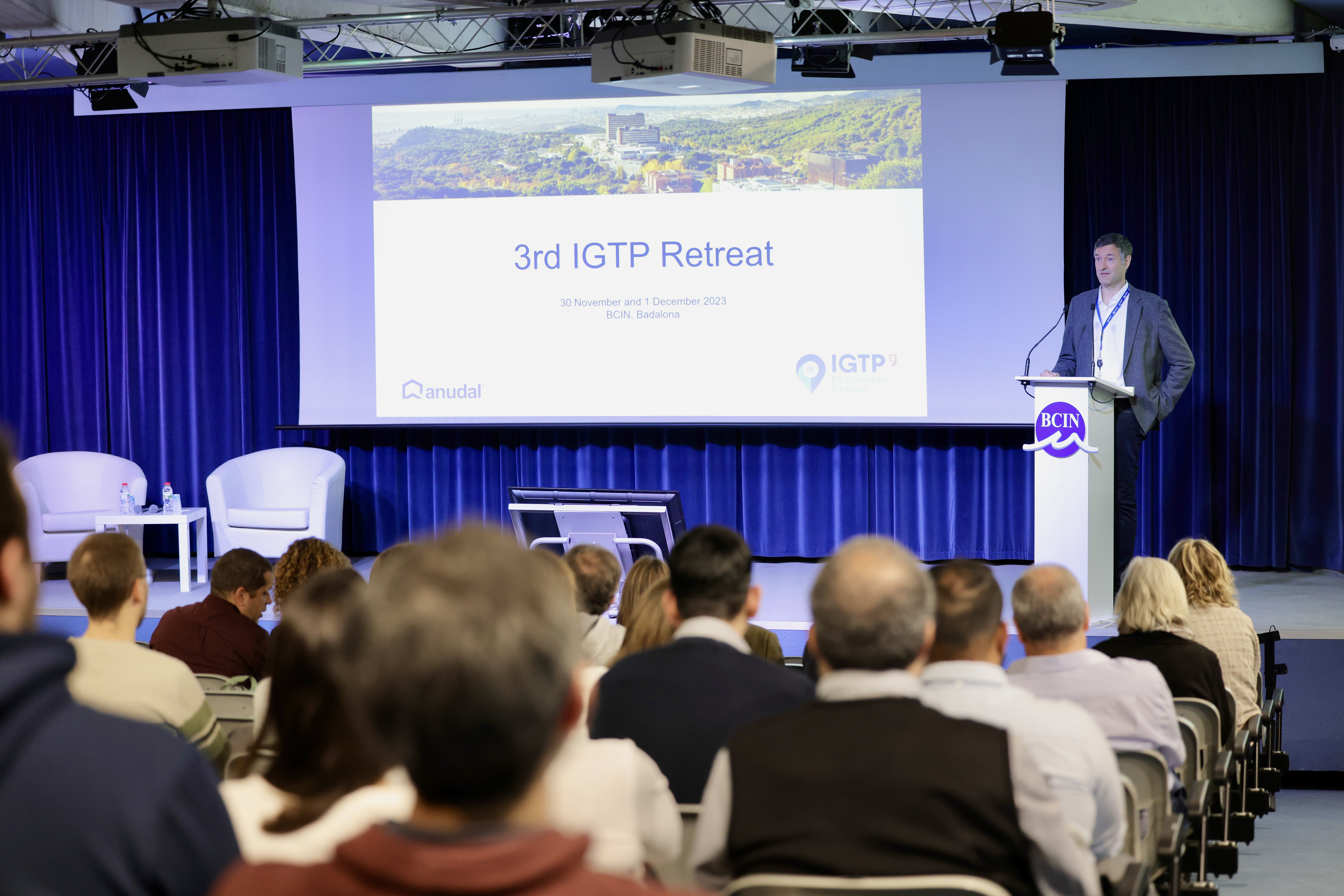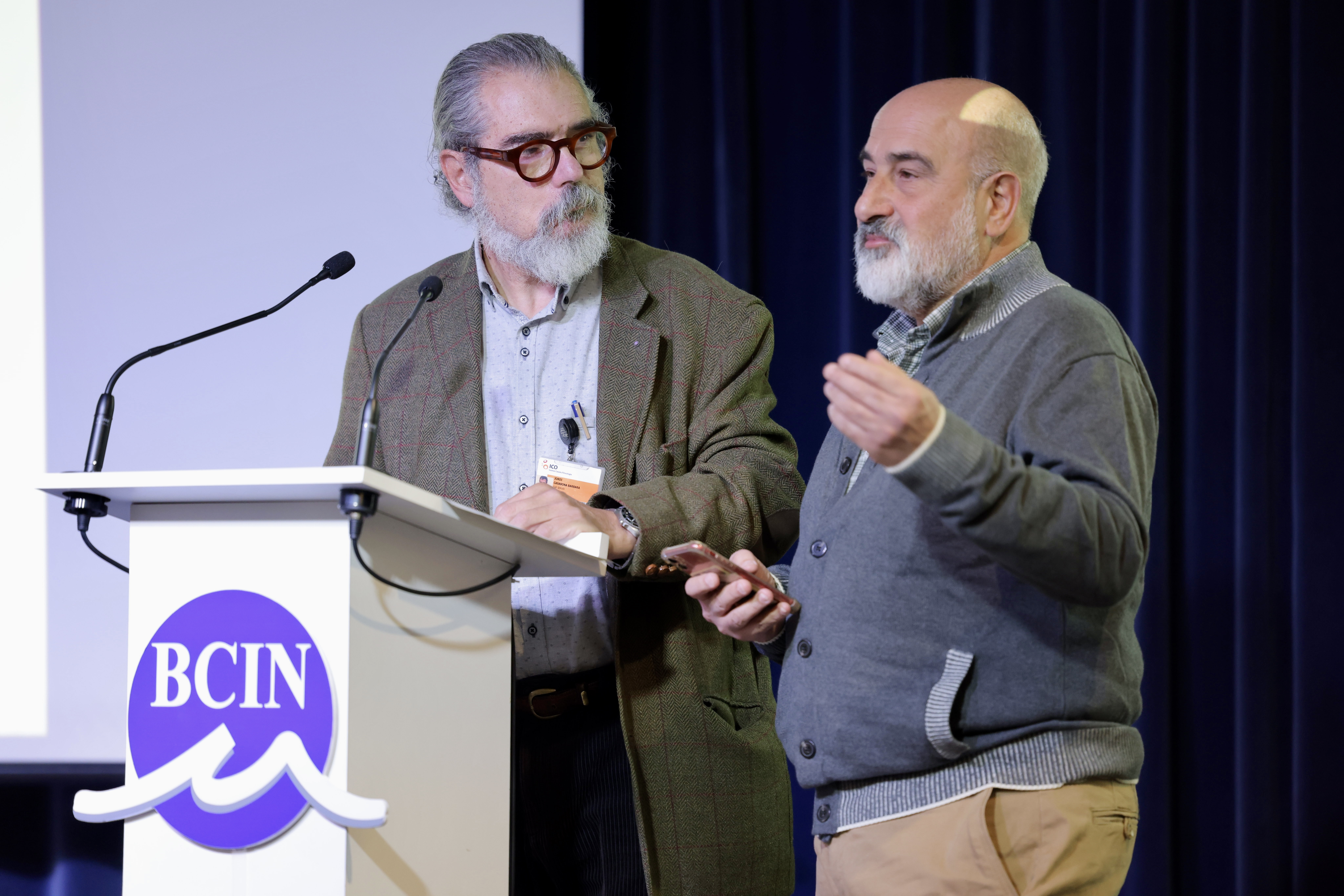The third IGTP Scientific Retreat proves a success
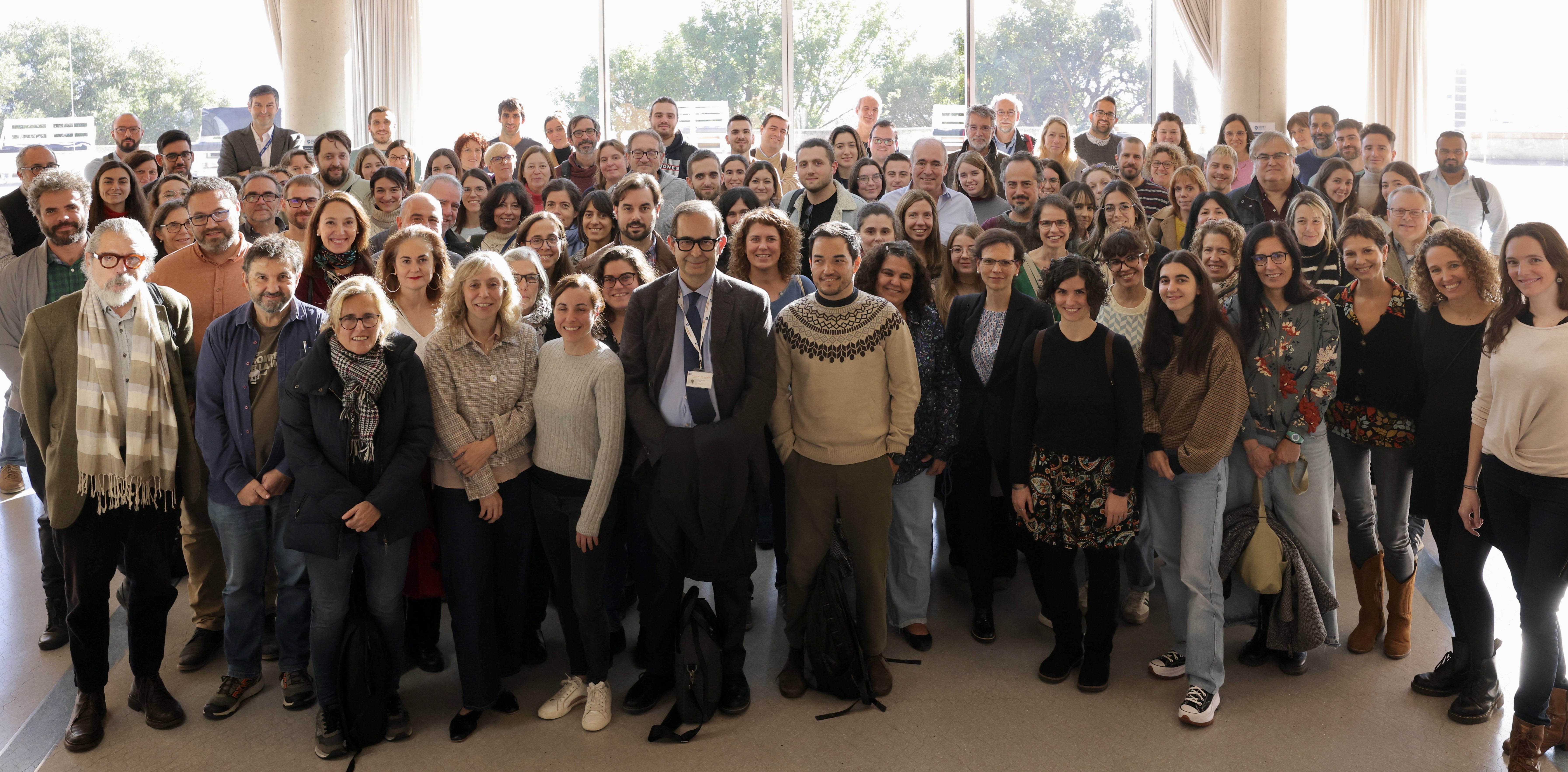
- The Germans Trias i Pujol Research Institute (IGTP) has presented its strategic plan for the next four years.
- The Transversal Program in Public Health and Primary Healthcare has been introduced, highlighting the collaborative and transversal approach of the centre's research.
- The IGTP Retreat consolidates as a nexus of the research carried out at the Can Ruti Campus. This year the event has focused on ageing and a patient-centred model of care.
Today saw the successful conclusion of the third IGTP Retreat - Research and Networking at the Can Ruti Campus, a two-day meeting point for leading professionals and researchers to share their latest advances and establish new connections in the field of medical research. The objectives of the event were to showcase ground-breaking research on the campus, discuss future directions in the context of the IGTP Strategic Plan and promote networking within the topics of ageing and patient centricity.
Jordi Barretina, director of IGTP, opened the meeting, stating that "the third edition of the IGTP Retreat reaffirms its role as a successful platform for sharing knowledge and fostering collaboration between health professionals and researchers at the Can Ruti Campus". Next, the scientific director of the institution, Julia García-Prado, presented the recent IGTP Strategic Plan for the period 2023-2027, setting the tone for two days of informative sessions and discussion.
Jordi Casabona (CEEISCAT-IGTP) and Pere Torán (IDIAP Jordi Gol) introduced a new strategic programme for the campus in the field of public health: the Transversal Program in Public Health and Primary Healthcare. This was followed by the presentation of the CARE Current Report, the Translational Program in Cancer Research, by Mireia Margelí (ICO-IGTP), and Miguel Angel Peinado (IGTP).
The first day also hosted the first four sessions of the Retreat. The first session focused on advanced therapies, chaired by researcher Marcel·la Franquesa (IGTP), and showcased the use of gene therapy in the treatment of Friedreich's ataxia (Ivelisse Sánchez, IGTP) and the study of the plasticity of the language network in patients with brain tumours using functional magnetic resonance imaging (Kilian Abellaneda-Pérez, Institut Guttmann). Young researchers presented their work Bioreactor-Produced MSC Extracellular Vesicles: A novel approach for CKD therapy (Sergio García Garcia, IGTP) and Manufacturing of Wharton's Jelly Mesenchymal Stromal Cellsderived Extracellular Vesicles for Clinical Application (Yvan Courageux, IGTP).
The topics of epidemiology and population studies were featured in a session chaired by researcher Cristina Agustí (CEEISCAT-IGTP), with presentations on the Cohort PISCIS HIV of Catalonia and the Balearic Islands (Andreu Bruguera Riera and Jorge Palacio-Viera, CEEISCAT-IGTP), as well as the TB-SEQ project, a population-based genomic epidemiology strategy to improve surveillance and control of tuberculosis in Catalonia (Elisa Martró Català, IGTP). In the presentations by young researchers, the Study of the normal population provides new information about the prevalence of Myotonic Dystrophy type 1 and Oculopharyngeal Muscular Dystrophy (Eduard Juanola Mayos, IGTP) and the work Frailty should be considered when defining multimorbidity patterns in the elderly (Lucía Amalia Carrasco-Ribelles, IDIAP Jordi Gol) were presented.
The day concluded with a session dedicated to cancer, chaired by Raquel Guillamat (IGTP), where IGTP's strategic projects on Peripheral nerve tumors at single-cell resolution: understanding tumor composition and heterogeneity, by Bernat Gel (IGTP), and Deciphering resistance acquisition to BRAF and MEK inhibitors in BRAF-mutated cutaneous melanoma using an in vitro model at single-cell level, by Anna Martinez-Cardús (IGTP-ICO). The presentations by young investigators were Impact of genomic sequencing data on treatment decisions in advanced breast cancer (ABC), by Milana Bergamino (ICO), Epigenetic biomarkers for prediction of radioiodine refractoriness in differentiated thyroid cancer, by Helena Rodríguez-Lloveras (IGTP) and Novel biomarker panel of HCC based on circulating monocyte protein expression, by Tony Paul (IGTP).
The second day of the event began with the fourth session, focused on neuroscience and ageing. The session, chaired by Javier Solana (Institut Guttmann), introduced the strategic projects Brain health maintenance and monitoring: Findings from the Barcelona Brain Health Initiative (Gabriele Cattaneo and Alba Roca Ventura, Institut Guttmann) and Developing an active pharmacological treatment for oropharyngeal dysphagia: Where did we come from and where are we going? (Noemi Tomsen, Consorci Sanitari del Maresme, CSdM). The presentations by young researchers were A novel intracerebral hemorrhagic stroke model by endovascular approach in swine, by Alexia Garcia-Serran (IGTP), Fully immersive Virtual Reality experiences as a Neurorehabilitation support tool for people with Acquired Brain Injury, by Alba Prats Obispo (Institut Guttmann) and HDAC11: A potential new target for treating sarcopenia and ageing-related muscle decline, by Mònica Suelves Esteban (IGTP).
The scientific discussion culminated with a round table on patient-centricity and innovation in research moderated by Pere Clavé (CSdM) with the participation of clinicians, researchers and patient representatives. Their contribution highlighted the importance of collaboration to improve clinical outcomes and patients' quality of life. Gisela Nogales (IGTP), Mateu Serra (CSdM), Dolors Soler (Guttmann Institute), Josep Martos (CSdM), Eva Álvarez (FSHD Spain), Laia Serras (Fundació Maresme) and Montserrat Pallarès (COCEMFE) participated in the round table.
Next, Marta Hernampérez, Commercial Director of Anudal Industrial (the company sponsoring the event), presented the Retreat prizes, which were awarded for the first time in this edition.
- Best Strategic Abstract: Gabriele Cattaneo & Alba Roca Ventura (Institut Guttmann)
- Best Young Investigator's Abstract: Milana Bergamino (ICO)
- People's Choice of Best Young Investigator's Abstract: Alexia García-Serran (IGTP)
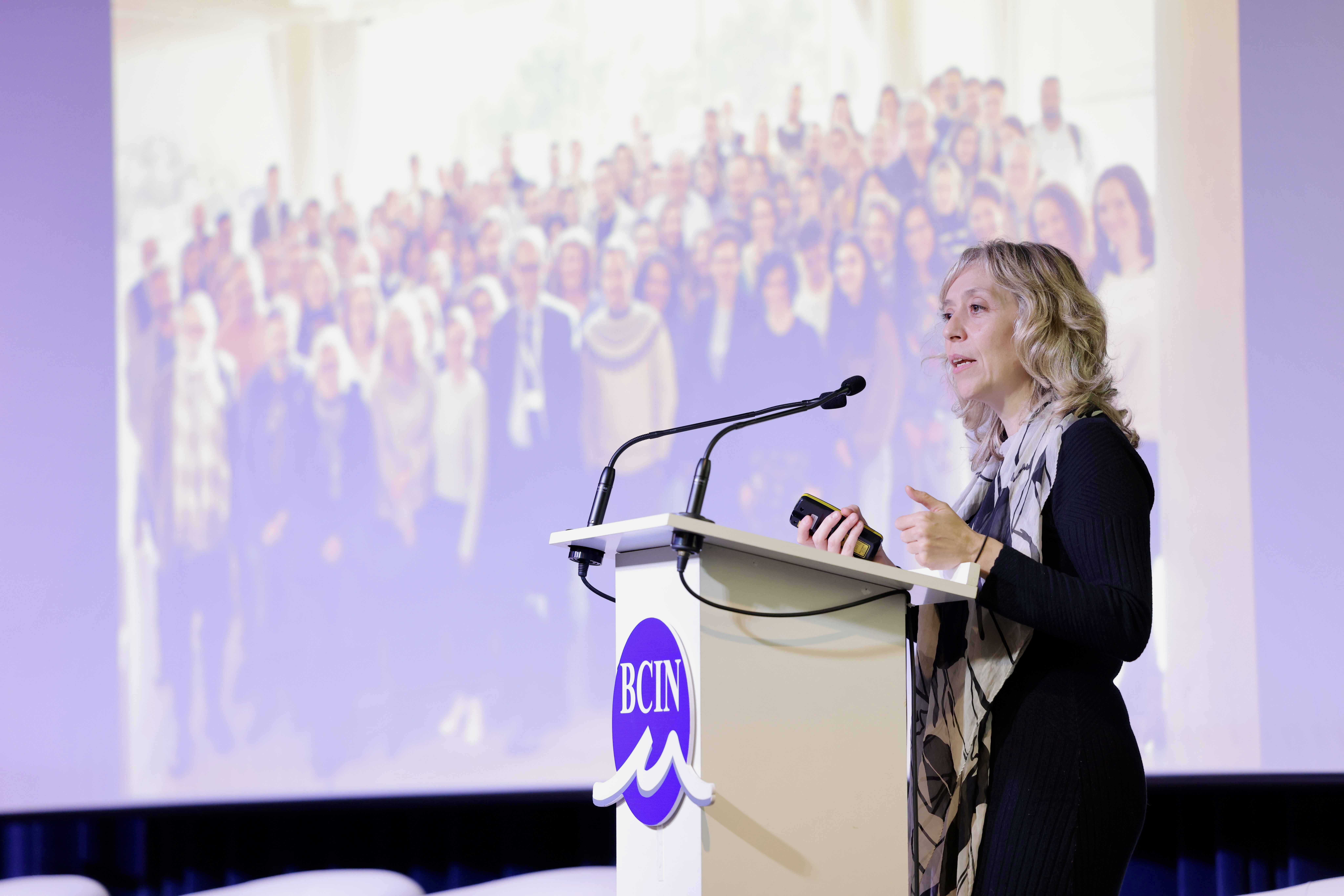
"The success of this Retreat consolidates it as a nexus of the research carried out at the Can Ruti Campus, a dynamic and multidisciplinary environment with more than a thousand professionals dedicated to research. The meeting has not only given us the opportunity to showcase the work of the groups and young researchers, but has also allowed us to share achievements, reinforce the values that guide our research and explore new avenues of collaboration", concluded Julia García-Prado, scientific director of IGTP.
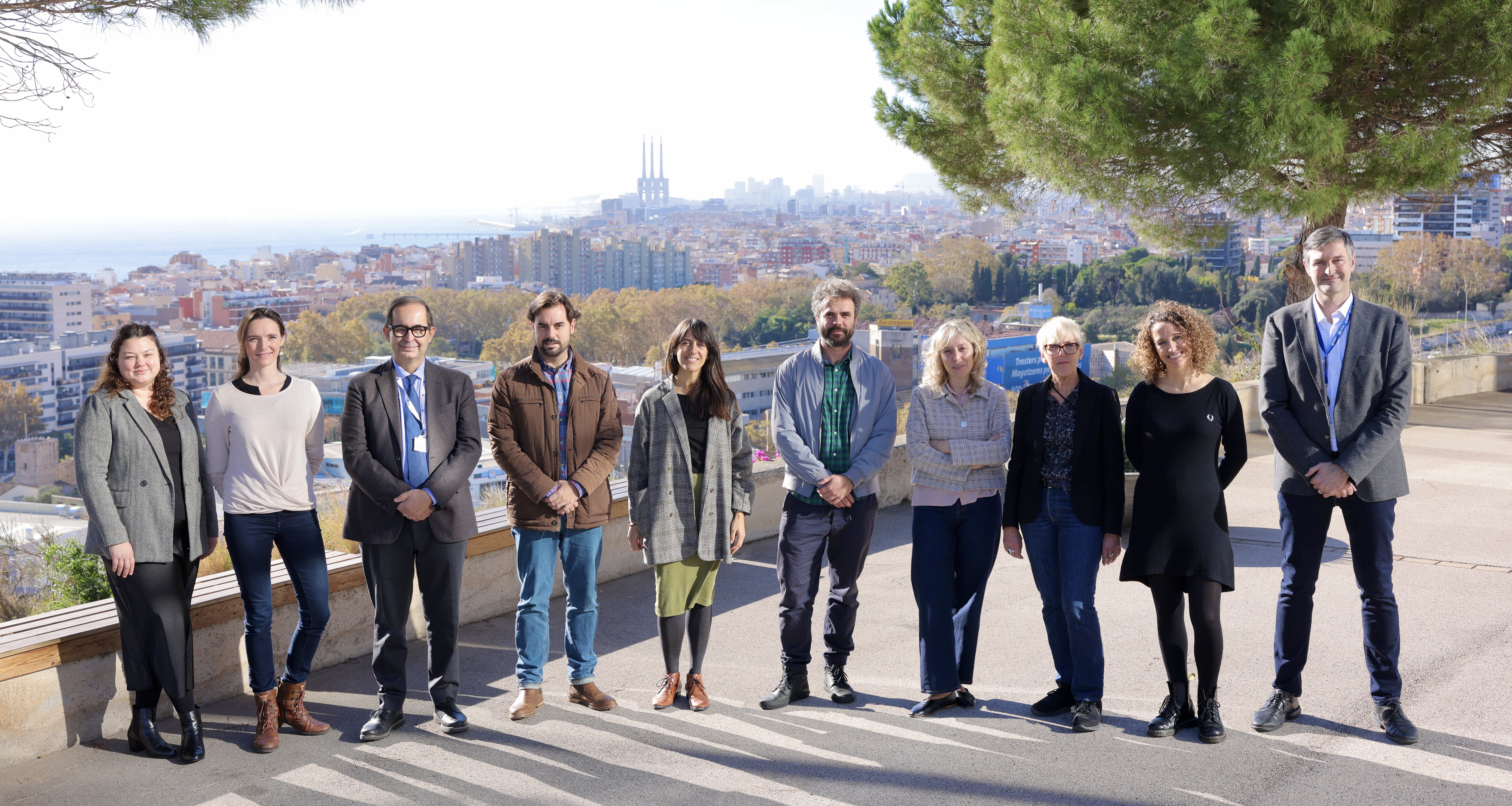
The Scientific Committee of the Scientific Retreat is composed by:
- Cristina Agustí, Senior Researcher, CEEISCAT, IGTP
- Arola Fortian, Scientific Coordinator, Translational Research in Oncology Group, IGTP, CARE
- Raquel Guillamat, Leader, Translational Research Group in Pulmonary Immunity, IGTP
- Omar Ortega, Researcher, Digestive Physiology Laboratory, CSdM
- Javier Solana, Research Coordinator, Institut Guttmann
The Retreat was sponsored by Anudal.


